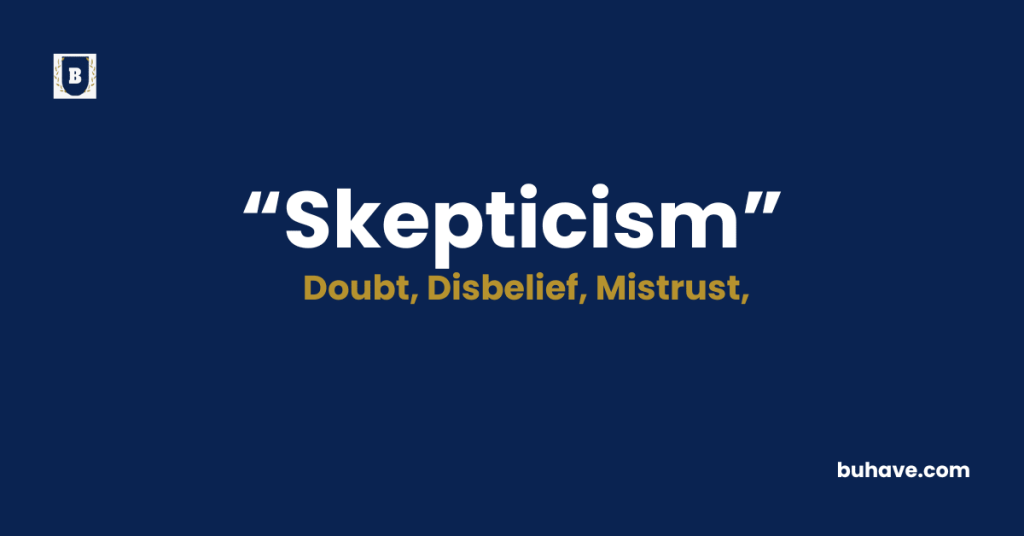The word ‘Skepticism’ (Noun) refers to a questioning attitude or doubt toward facts, beliefs, or claims that lack solid evidence. In this guide, you’ll learn the full definition, synonyms, antonyms, etymology, and real-life examples of how to use ‘Skepticism’ correctly in sentences.
Skepticism Explained in Depth
A complete and detailed guide to the word ‘Skepticism’ including meaning, definition, examples, etymology, synonyms, and antonyms.
Meanings of Skepticism
Skepticism means having an attitude of doubt, questioning, or disbelief toward information, statements, or accepted truths. It often involves seeking evidence before accepting something as true, and can apply to science, beliefs, politics, or everyday claims.
Definition
Skepticism is a noun that refers to a disposition to doubt or question accepted opinions or claims. It can range from healthy critical thinking to deep philosophical doubt. In common use, it suggests cautiousness in believing without proof or clear reasoning.
Etymology
The word “skepticism” originates from the Greek word skeptikos, meaning “to reflect or consider.” It entered English in the 16th century through Latin and French, originally relating to philosophical schools of doubt and inquiry.
Example Sentences
- Her skepticism about the product led her to research reviews before buying.
- There was growing public skepticism over the government’s announcement.
- Skepticism can protect people from scams and misinformation.
Skepticism Synonyms
- Doubt
- Distrust
- Suspicion
- Cynicism
- Questioning
- Uncertainty
- Disbelief
- Incredulity
- Apprehension
- Wariness
Skepticism Antonyms
FAQs about Skepticism
Here are some frequently asked questions (FAQs) about the word “Skepticism”
1. What does “skepticism” actually mean?
“Skepticism” refers to a mindset of questioning or doubting information, requiring proof before accepting something as true.
2. Is skepticism the same as cynicism?
No. Skepticism is about seeking truth through questioning, while cynicism assumes people are motivated by selfishness or dishonesty.
3. Is skepticism good or bad?
Skepticism is often beneficial when it promotes critical thinking and prevents blind belief, but excessive skepticism can lead to mistrust or indecision.
4. What causes skepticism in people?
Skepticism can arise from past experiences, lack of evidence, education, or a desire to avoid being misled.
5. How can skepticism help in everyday life?
It helps people make informed decisions, avoid scams, and question misleading or exaggerated claims in media and advertising.

















